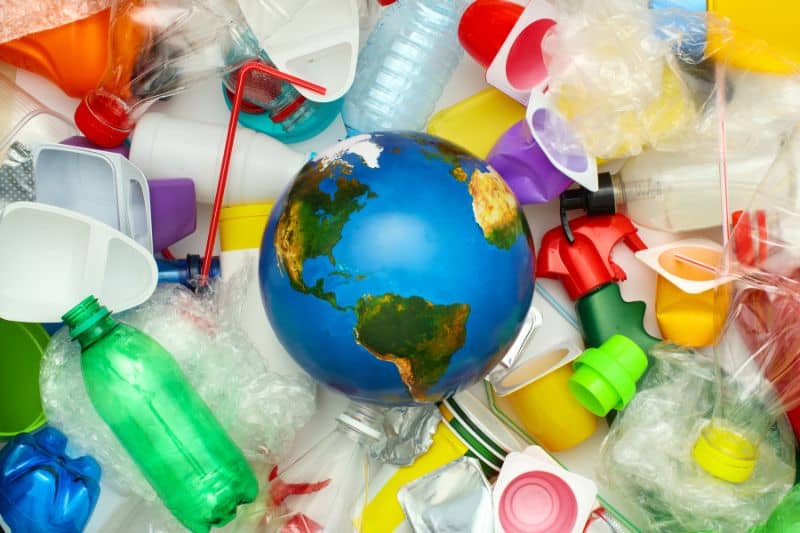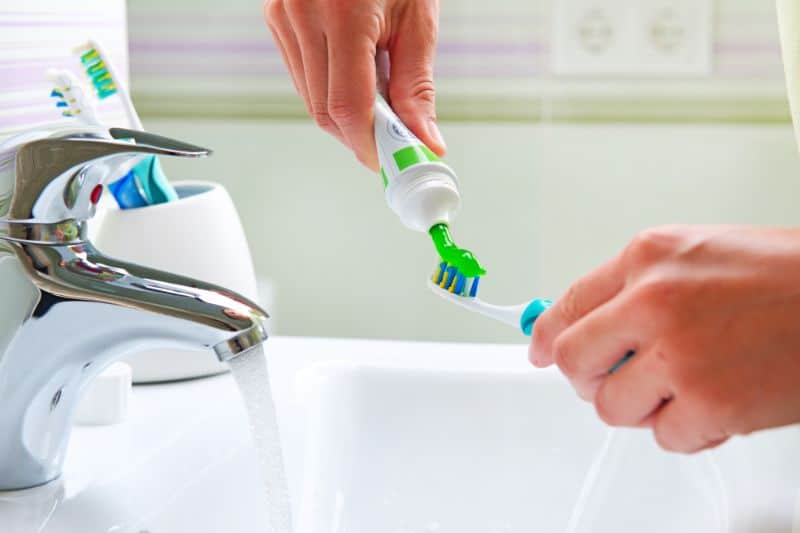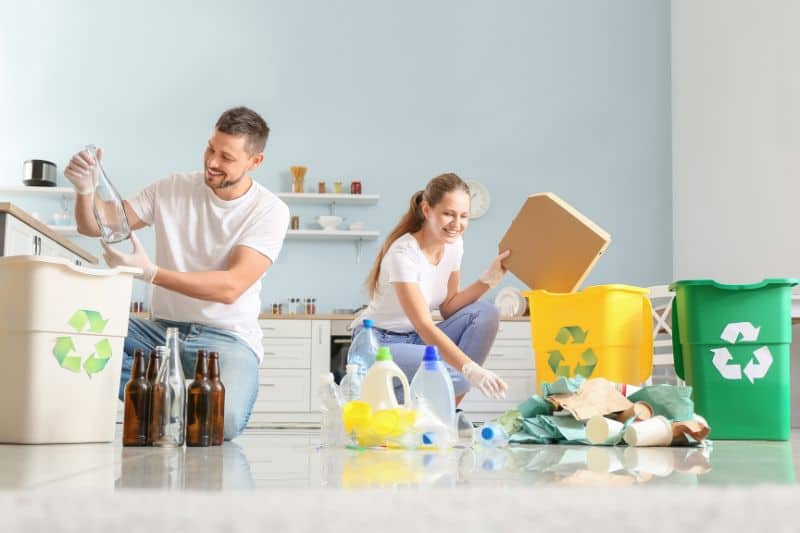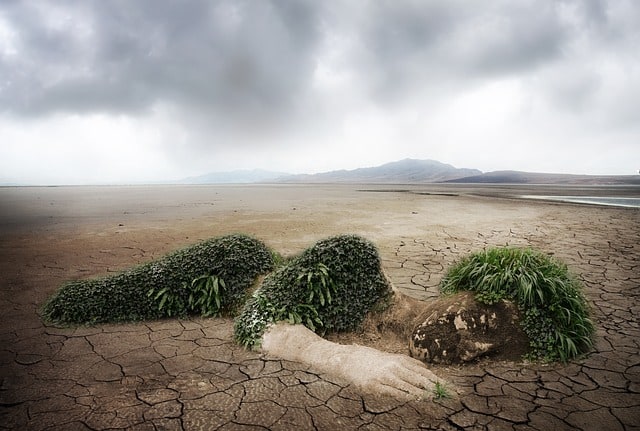It is postulated that it takes only 3 weeks for a human being to form a habit. That isn’t a long time, right?
But even then, it’s worrying that most people haven’t developed the right habits to help keep the environment clean.
In fact, most of what’s happening today is contrary to how things should be, with some of the daily human habits slowly damaging the environment.
And while some of these human habits may seem harmless and so much integrated into our everyday life, they can significantly impact our environment in the long haul.
Here are 15 daily habits of human beings that are slowly killing the environment.
15 Daily Habits of Human Beings that Are Destroying the Environment
1. Driving
Driving is one of the chief means people prefer to use when going about their daily activities. And with as many as 282.3 million motor vehicles in the United States alone, the environment suffers the most from fumes produced by cars when burning gasoline.
And yes, it gets even worse at the global scale, considering the increasing number of vehicle owners.
As such, to help curb the problem, people should opt for carpooling or be more willing to use public transportation as a means of travel to reduce their carbon footprint.
Switching to zero-emission electric vehicles would also be a great move as these vehicles aren’t powered by combustion engines.
2. Improper Disposal of Batteries and Ink
We’ve all used household batteries in remote controls, clocks, calculators, toys, and other items.
But are you aware that these batteries contain traces of mercury and other toxic chemicals that damage wildlife and sea life when they accumulate and leak into ecosystems?

That’s right!
Ink cartridges, on the other hand, have an even more toxic effect on the environment when not disposed of correctly. That’s because most ink cartridges contain VOCs and heavy metals that can poison the environment and human and animal health.
Sadly, most ink cartridges end up in landfills each year, making it even easier for them to poison the soil and water and degrade the environment.
Unlike most toxins that only affect the exposed life form, chemicals in household batteries and ink cartridges can accumulate within the animals (in a process called biomagnification) and pass along the animal life cycle and food chains, harming even more and more animals.
3. Excessive Use of Plastic
Go shopping, whether for groceries or any other household item, and you’ll likely have your stuff packaged in a plastic bag, or even 2 or 3, depending on what you bought.
While plastic, in any form, is very convenient, the problem with it is that it is a major pollutant to the environment due to its inability to degrade naturally, with a life cycle extending to millennia.

This means that as more and more plastics are dumped in landfills, decomposition does not occur, so the problem increasingly becomes a great concern.
4. Throwing Food as Waste
Many people think it is etiquette not to completely empty a plate during a meal. But generally speaking, throwing food is bad practice, especially considering that every day we’ve got billions of people sleeping on empty stomachs from lacking this basic necessity.
But outside the moral perspective, wasting food can be a dangerous thing for the environment. You see, as food waste rots in landfills, it produces methane, one of the greenhouse gases.
Besides, if the waste food is not disposed of properly, it can increase the organic matter in waterways and other aquatic environments that can augment the growth of algal blooms.
5. Using Paper
Paper is used daily by human beings in different forms. It could be in the form of paper towels in the kitchen, tissues in the toilet, and print media for our daily reads.
Regardless of our daily heavy use of paper, what we humans overlook is that it is made from trees.

Since it has a steady increase in demand due to our lifestyle and the altered definition of hygiene, we are constantly cutting down trees to fulfill market demands.
It has therefore increased the number of trees cut down every year, exacerbating the issue of deforestation and consequently increased desertification.
6. Boiling Water Using Electricity
Have you ever known that boiling water in the shower or kitchen for your morning cup of coffee is extremely inefficient?
Well, electricity may provide faster heating, but the amount of energy used to boil water using electricity makes it one of the most expensive methods as compared to gas.
The more we use electricity for heating, the more it needs to be produced and supplied to meet the demand. The problem is that much electricity is generated via coal and diesel engines, which can take a big toll on the environment.
7. Washing One’s Face
It may look too petty, but trust me, how you wash your face can significantly impact the environment.
Most of the face washes people use contain plastic exfoliating micro-beads, which researchers have termed as a serious environmental problem, simply because they aren’t filtered during sewage treatment due to their small size.
When released into water bodies, they are swallowed by fish and other marine animals that harm their health and could poison their organs or damage their gills.
The beads also destroy the animal’s internal systems as they are made for scrubbing during use by humans. It is the bead’s abrasive nature that is damaging to aquatic animals.
8. Eating Meat
One of the most widely produced greenhouse gases in the world is methane. This gas traps heat within the atmosphere. As research postulates, the biggest producer of methane gas is farmed livestock.
In this sense, the production of animal products is a large contributor of methane, a greenhouse gas mostly from animal manure and enteric fermentation.

By continuing to demand meat products, the farmers continue to increase the supply of the goods by keeping more animals, leading to more greenhouse gases.
This cycle breeds more problems for the environment. To curb it, people should cut down on the amount of meat they consume. Considering alternative protein sources can also be a great way to reduce methane production.
9. Flushing the Toilet
Did you know the most efficient toilets use about 1.28 gallons of water per flush? That’s about 6.35 liters of water, and that’s for the High-Efficiency Toilets (HET), which is about 20% less than the amount standard toilets need.
That’s a lot, especially considering the water can’t serve any other purpose until processed at the sewage plant.
The better alternative would be to use compost toilets. Using this option instead of water is a good alternative since the waste can be used for projects such as manufacturing manure.
However, this leap can be too large for some and may not be feasible in some regions. So, the alternative could be to reduce the number of times one flushes the toilet or the installation of low-flush toilets.
10. Brushing Teeth
Brushing teeth is another bad human habit because it contributes to water wastage. Most people tend to leave the tap running when brushing their teeth, which can be inefficient.
To ensure efficiency, always keep the tap closed unless you are rinsing your mouth. Alternatively, you can use brushing techniques that do not require one to use water.

Several herb shoots and leaves have been used over the centuries to offset the stale breath of individuals and provide dental hygiene and protection against germs that cause cavities.
A prime example is among the Maasai of Tanzania and Kenya. They use a shrub colloquially known as the toothbrush tree (Salvadorapersica).
The stem of the shrub is used to clean the teeth. Also, it serves to provide additional health benefits as it is associated with remedies for complications borne from rheumatism and coughs.
11. Spending Time in Front of A Screen (TV, Mobile, Computer)
Spending most of our time in front of the TV, or any other screen for that matter, is a daily human habit that drains the energy out of the device or requires the use of electricity. With about 7 hours of the day spent before some sort of screen, it increases the electricity load.
The remedy for this is to reduce the amount of time spent using electronic devices to reduce the electricity load that is placed on the power grid.
12. Habitual Spending
Consumerism is the constant and excessive purchase of consumer goods. It comes after basic needs have been met, allowing individuals to buy items for leisure or some other purpose.
This habit increases the demand for consumer products, thus making the market produce more by constantly running production factories.
As a result, there is constant energy consumption that takes its toll on the environment as it involves the burning of fossil fuels and the production of associated greenhouse gases thereafter.
To avoid habitual spending, we should minimize the number of goods we purchase to reduce the demand and, therefore, the supply and production of those goods. Ultimately, it will reduce industrial processing and conserve the environment.
13. Not Recycling
The last of the habits that devastate the environment is not recycling. By not recycling, we send too many resources to the landfills, such as plastics and glass. Recycling conserves energy and resources by repurposing already-produced goods.

This means that the energy that should have gone into producing wholly new goods can be repurposed or conserved.
14. Keeping Electronic Gadgets On
You have probably heard of it thousands of times before, but turning off electronic gadgets when they are not in use does make a difference to the environment.
Not only would it help you to reduce your monthly electricity bill, but it also helps reduce your carbon footprint on the environment.
15. Online Shopping
With eCommerce companies expanding their reach every year and technology available on hand to order items online as and when required, today online shopping has become terrible for the environment in many ways.
Emissions from the trucks carrying items and the plastic wrapping of the items that go to landfill sites create serious issues that need to be looked into.
References:
https://sciencing.com/human-activities-affect-ecosystem-9189.html






